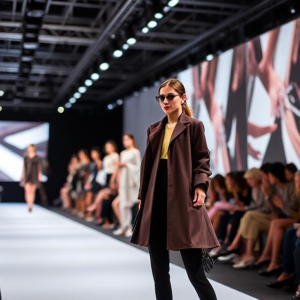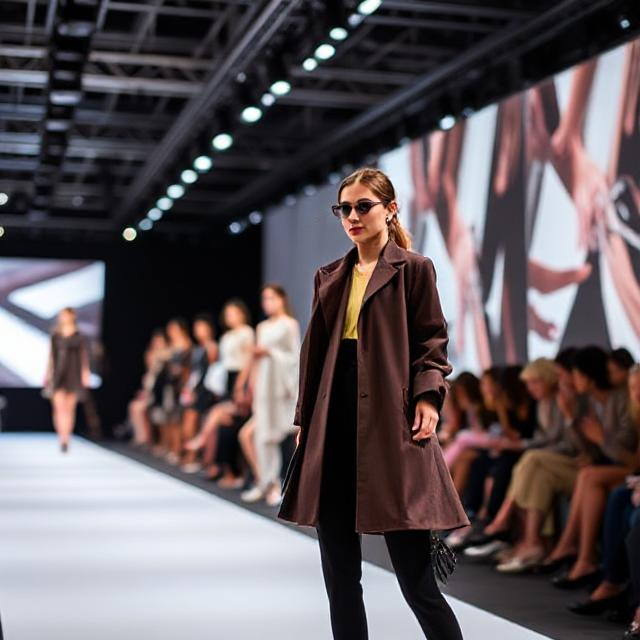
Fashion events serve as powerful platforms for showcasing brands, emerging designers, and industry trends. However, to ensure a successful event, robust marketing strategies must be employed. Whether you are hosting a fashion show, a product launch, or a pop-up event, effective marketing can drive engagement, increase attendance, and enhance brand visibility. Below are key fashion event marketing tips to maximize impact.
1. Define Your Goals and Target Audience
Before launching your marketing campaign, establish clear goals. Are you aiming to increase brand awareness, generate sales, or build industry connections? Identifying your target audience, whether it be fashion enthusiasts, influencers, media professionals, or buyers, helps tailor your marketing strategy to resonate with the right people.
2. Develop a Strong Branding Strategy
Your event branding should be consistent and visually appealing. Create a unique event logo, theme, and color palette that aligns with your brand identity. A compelling tagline or hashtag can also boost brand recall and encourage online conversations.
3. Utilize Social Media and Influencer Marketing
Social media is a powerful tool for promoting fashion events. Here’s how to leverage it effectively:
- Create a Content Calendar: Plan posts leading up to the event, including behind-the-scenes content, teasers, and countdowns.
- Engage Influencers and Brand Ambassadors: Collaborate with fashion influencers and industry personalities to generate buzz.
- Use Event Hashtags: Develop a unique and catchy event hashtag to encourage user-generated content and discussions.
- Live Streaming: Stream key moments of the event on platforms like Instagram Live, Facebook Live, or TikTok.
4. Leverage Email Marketing and Event Invitations
Email marketing remains an effective way to communicate with potential attendees. Craft personalized email invitations, highlight event details, and offer exclusive incentives such as VIP access or early-bird tickets. Utilize follow-up emails to maintain engagement before and after the event.
5. Collaborate with Industry Partners and Sponsors
Partnering with fashion brands, media houses, and sponsors can amplify your reach. Collaborations offer mutual benefits, such as increased visibility, shared resources, and enhanced credibility. Ensure sponsors receive adequate brand placement in promotional materials and event visuals.
6. Engage Traditional and Digital Media
A comprehensive PR strategy should include both traditional and digital media outreach:
- Press Releases: Distribute well-crafted press releases to fashion magazines, blogs, and news platforms.
- Media Partnerships: Invite fashion journalists, bloggers, and media influencers to cover the event.
- Paid Advertising: Utilize online ads on platforms like Facebook, Instagram, and Google to target specific demographics.
7. Optimize Your Event Website and Registration Process
A user-friendly event website enhances the attendee experience. Ensure your site includes:
- Event details (date, venue, schedule, guest speakers, etc.)
- An easy registration or ticketing system
- Engaging visuals and promotional videos
- Mobile optimization for seamless navigation
8. Utilize Guerilla and Experiential Marketing
Innovative and interactive marketing tactics can leave a lasting impression. Consider:
- Flash Mob Promotions: Organizing a surprise fashion showcase in public spaces.
- Exclusive Pre-Event Pop-Ups: Hosting pre-event experiences to generate anticipation.
- Augmented Reality (AR) and Virtual Reality (VR) Experiences: Offering virtual fashion previews to engage tech-savvy audiences.
9. Post-Event Engagement and Follow-Up
After the event, continue engagement through:
- Sharing Event Highlights: Post recap videos, photos, and testimonials on social media.
- Thank You Emails: Express gratitude to attendees, sponsors, and participants.
- Surveys and Feedback Forms: Gather insights to improve future events.
Marketing a fashion event requires a mix of creativity, strategic planning, and digital engagement. By leveraging social media, influencer partnerships, traditional media, and experiential marketing, you can create a memorable and impactful event. With the right approach, your fashion event can successfully captivate audiences, strengthen brand positioning, and drive business growth.
